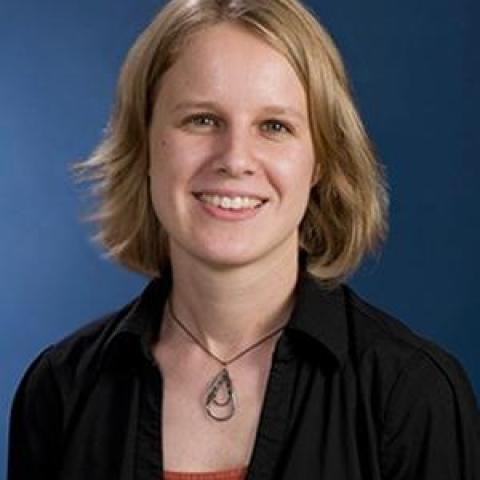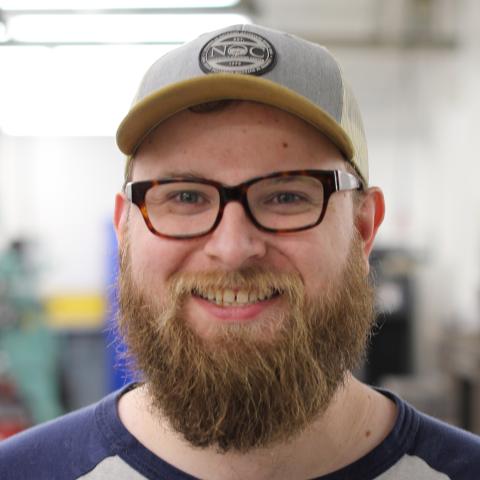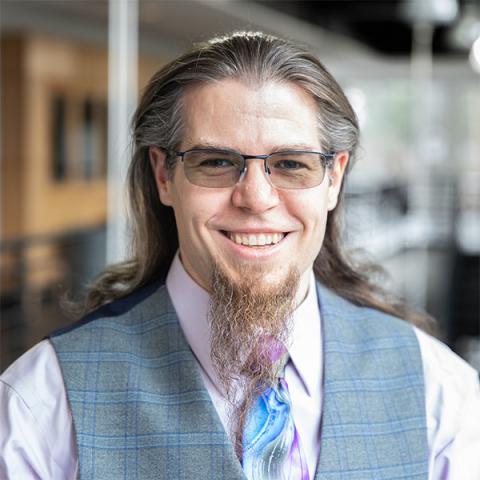Ann Faison



Andrew Dugenske is the Director of the Factory Information Systems (FIS) Center and a Principal Research Engineer at the Georgia Tech Manufacturing Institute (GTMI). He is also founder and C.E.O. of Factory Right LLC, a software company that provides information technology solutions to manufacturing enterprises and was co-founder and president of Great Technological Collaborations Inc. In addition, Mr. Dugenske is a State of Georgia registered professional engineer.
For the past 20 years, Mr. Dugenske has led dozens of industry-funded projects relating to software systems and supply chain issues across a variety of industries. He currently acts as an industry liaison for Georgia Tech, conducts short courses, publishes, and consults in the area of Factory Information Systems (FIS). He is a member of the National Electronics Manufacturing Initiative (NEMI) FIS working and implementation groups, the NEMI road mapping team, several IPC technical committees, the JISSO International Council and the joint NEMI-IPC CAMX standardization committees. Prior to his arrival at GTMI, Mr. Dugenske was a Research Engineer at the Georgia Tech Research Institute (GTRI), where he developed computer-controlled radar positioning systems, conducted structural analysis using finite element analysis, and provided design expertise. He received a B.S. from the University of Illinois, an M.S. from the Georgia Institute of Technology both in Mechanical Engineering.

Audra Davidson is a research communications program manager in Georgia Tech's Institute Communications supporting the Georgia Tech Manufacturing Institute, the Neuro Next Initiative, and Georgia Tech research communications overall.

3D printing; Additive/Advanced Manufacturing; Biomaterials; Composites; Emerging Technologies; Nanocomposites; Nanomanufacturing; Manufacturing, Mechanics of Materials, Bioengineering, and Micro and Nano Engineering. Advanced manufacturing and materials processing of metallic, polymeric, ceramic, and composite materials for applications in life sciences, propulsion, and energy. Professor Das directs the Direct Digital Manufacturing Laboratory and Research Group at Georgia Tech. His research interests encompass a broad variety of interdisciplinary topics under the overall framework of advanced design, prototyping, direct digital manufacturing, and materials processing particularly to address emerging research issues in life sciences, propulsion, and energy. His ultIMaTe objectives are to investigate the science and design of innovative processing techniques for advanced materials and to invent new manufacturing methods for fabricating devices with unprecedented functionality that can yield dramatic improvements in performance, properties and costs.


Colton's research interests are in the areas of design and manufacturing, focusing on polymers and polymer composites. Processing techniques, such as micro-molding, injection molding, filament winding, resin transfer molding and the like, are studied and used to fabricate these devices and products, such as smart composite structures.
The design of processing techniques and equipment for metamaterials also are being studied with applications being dielectric materials for electromagnetic applications. Due to the small-scale physics associated with their engineering, nano-scale metamaterials exhibit superior properties and enhanced performance.
Colton has a strong passion for the application of engineering for the common good – "humanitarian design and engineering" and "design that matters," - such as in developing countries and other resource limited environments. To be successful, multidisciplinary teams must work together to produce products that function as well as delight, that exceed customer's expectations, regardless of where the product is used. Along these lines, product design and role that the interactions between engineering and industrial design forms another research interest.
Manufacturing and CAE & Design; Humanitarian Design and Engineering (HumDE); Manufacturing; Production; and Design; Polymer and polymer composites; Biomedical and Medical Devices; Technologies for developing countries and other resource-limited environment; Product development and industrial design; Computer-Aided Engineering; Polymeric composites; Materials Design

I am an Associate Professor in the School of Interactive Computing at Georgia Tech. I received my Ph.D. and B.S. degrees in Computer Science from Carnegie Mellon University, and held positions as a Postdoctoral Associate at the MIT Media Lab and as Assistant Professor at Worcester Polytechnic Institute prior to joining Georgia Tech. I direct the Robot Autonomy and Interactive Learning (RAIL) lab, where we work on developing robots that are able to effectively operate in human environments. My research interests span robotics and artificial intelligence, including semantic reasoning, adjustable autonomy, human computation and cloud robotics. Please visit the RAIL lab website for a description of our latest projects.
Robotics; Artificial Intelligence; Semantic Reasoning; Adjustable Autonomy; Human Computation and Cloud Robotics.

My research focuses on engineering-driven machine learning methodologies for real-world problems in manufacturing and healthcare. The objective is to develop new models that combine learning methods with domain knowledge, in order to improve (i) efficiency, performance, and interpretability of the learning models; and (ii) productivity, scalability, and security of the engineering systems.
Research areas: Additive Manufacturing, Bio-manufacturing, Healthcare, Machine Learning, Statistics.
Location:
Jialei Chen, Ph.D.
Department of Statistics, University of Georgia

Mechanical Specialist. Responsible for equipment maintenance, training, and safety.

Zach Brunson is a Research Engineer in the G. W. Woodruff School of Mechanical Engineering at the Georgia Institute of Technology, working primarily at the Advanced Manufacturing Pilot Facility (AMPF). Prior to Georgia Tech, Zach was a graduate teaching fellow and research assistant at the Colorado School of Mines in Golden Colorado where he received his Ph.D. (2021) and M.S. (2019) in Mechanical Engineering studying theoretical and experimental mechanics of inelastic anisotropic and asymmetric materials. Prior to pursuing a graduate degree, Zach gained experience working as a measurements field engineer in the petroleum industry (2013-2015) after earning his B.S. (2013) in Mechanical Engineering from the University of Colorado in Boulder Colorado.
Zach’s research revolves around as manufactured material property prediction, measurement, and certification. The two major thrusts of his research are: (1) theoretical and experimental mechanics of inelastic anisotropic and asymmetric materials and (2) sensor development for process monitoring and part qualification in directed energy deposition (DED) additive manufacturing (AM) systems. By developing a more complete understanding of the elastic limits of anisotropic and asymmetric materials, we can better describe both the deformation during manufacturing processes such as forging, forming, or rolling and the final strength of as manufactured (conventionally or AM) components. By developing sensor systems to monitor AM processes such as DED, we can begin to better inform the creation of predictive models, identify critical events related to part performance, improve feedback controls for more reliability and repeatability, and ultimately qualify processes and certify components.